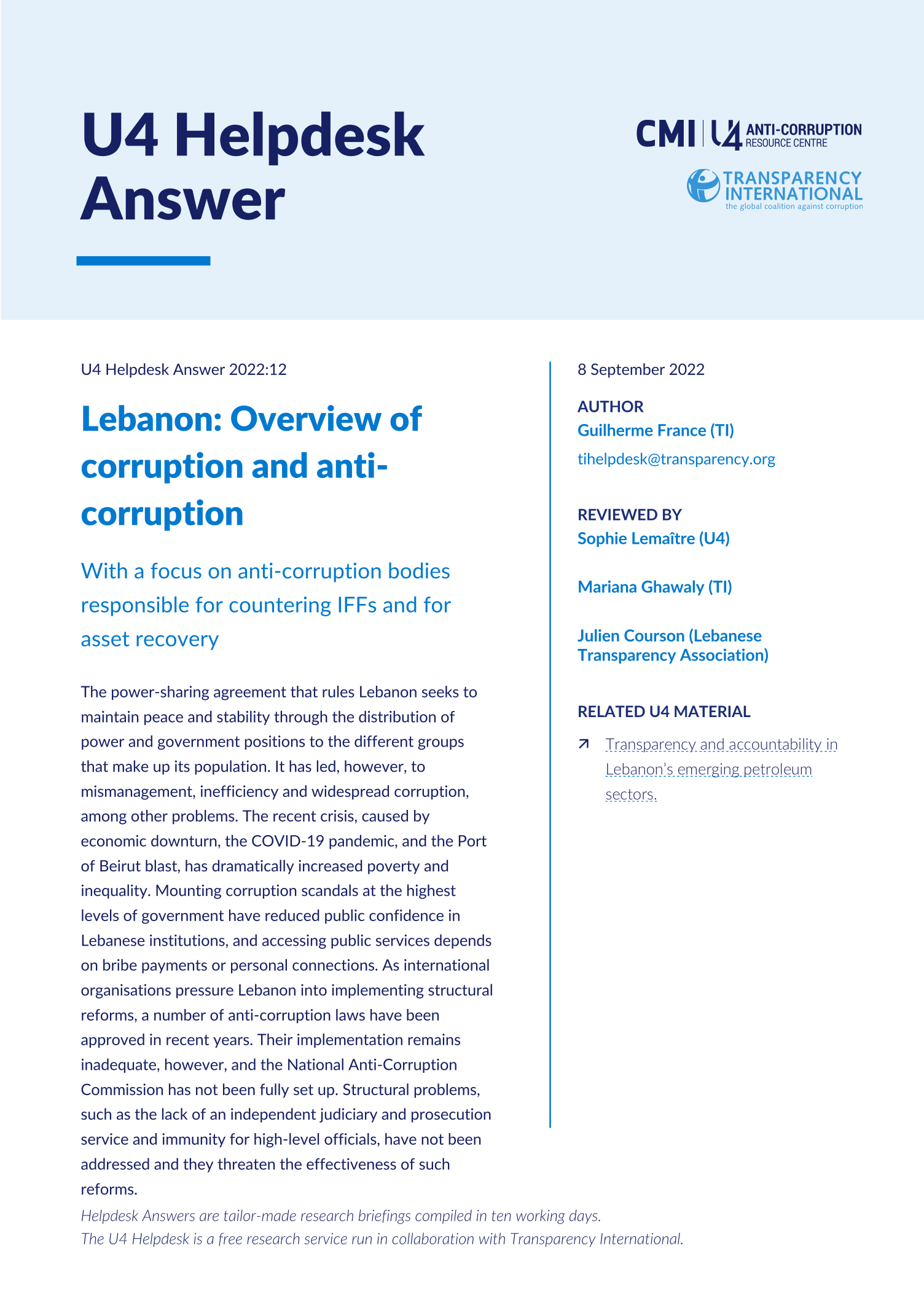Main points
- Corruption has reached an all-time high in Lebanon, aggravating an economic crisis that has produced unprecedented poverty and inequality.
- Corruption is too high a cost for the decades-old power sharing agreement between local elites.
- Recent corruption scandals have involved high-level public officials, sapping public confidence in the country’s institutions and leading to civil unrest.
- Access to public services often depends on bribe payments or personal connections (wasta).
- Several anti-corruption laws have been approved in the past five years, but their implementation remains problematic. Structural issues, such as a lack of an independent judiciary and reduced public transparency, severely impact the effectiveness of these reforms.

